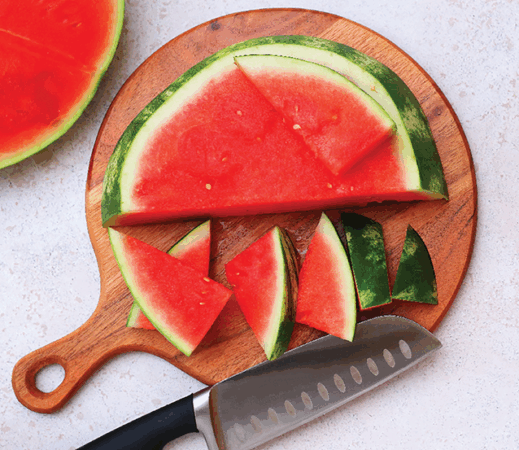Fresh fruit is a delicious treat that can be enjoyed any time of year, but consumption seems to heat up as the mercury rises. Many fruits come into season in spring and summer. Cherries, melons, plums, nectarines, and blueberries are just some of the tasty fruits that are typically enjoyed during warm months. But for those who are trying to eat healthy, they may wonder if fruit — which tends to be high in sugar — aligns with their diet and exercise plans.
People long have been advised to monitor their sugar consumption. Harvard Health reports that the effects of too much sugar intake can result in elevated blood pressure, inflammation, weight gain, diabetes, and fatty liver disease. Yet fruits are listed on the USDA’s Dietary Guidelines for Americans, with experts saying adults should aim for 1.5 to two cups of fruit per day, or about two servings. That’s because not all sugar is created equal. Fruit contains naturally occurring sugar (fructose) rather than the added sugar that is in many foods, baked goods and candy. According to the Cleveland Clinic, the body processes natural sugars differently than it would sugar in cookies and cakes. Healthline indicates that fructose is only harmful in large amounts, and it is difficult to get excessive amounts of fructose from fruit. That means for most people, the amount of sugar in fruit is safe to eat.
Fruits tend to be loaded with fiber and water, which can help a person feel fuller, longer. And the high fiber content means fruits will take a while to digest and the fructose will be processed by the liver slowly, which should not cause a sugar spike like added sugar would.
That isn’t to say that all forms of fruit are the same. Eating whole fruit is the best type because of the fiber and the protective nutrients, including antioxidants. Fruit juice is a more concentrated source of fructose that doesn’t have the fiber to moderate sugar absorption. Excessive fruit juice intake can cause fat deposition in the liver, obesity, and insulin resistance since juice is stripped of the fiber and often nutrients during processing.
Those who want to avoid the fruits with the highest sugar concentration should skip mangoes and apples, which have 46 and 25.1 grams of sugar in one piece of fruit, respectively. However, unless a person has diabetes or another health condition where blood sugar levels need to be monitored, individuals shouldn’t fret about the fruit in sugar, as most don’t eat enough for the sugar to be a concern.




